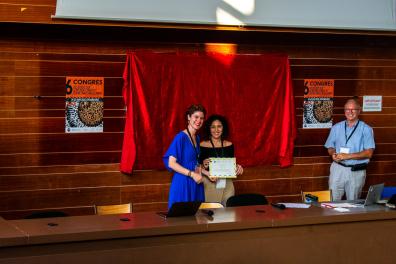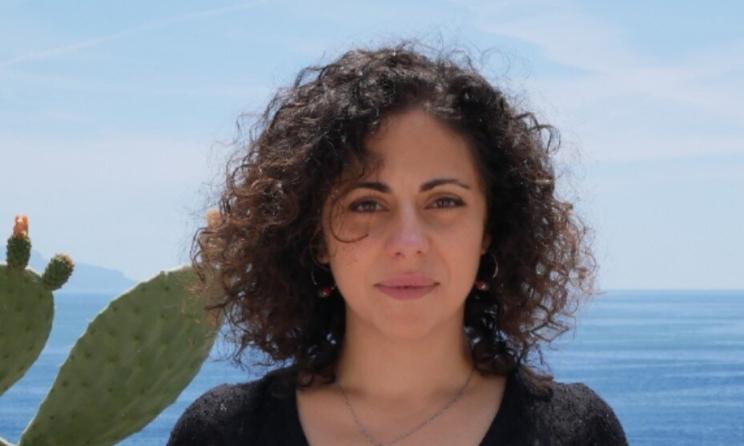Margherita Rasulo, winner of the Prix Michel Seurat 2025

The Michel Seurat Prize aims to provide financial support each year to a young researcher from a European, Near Eastern or Maghreb country, thereby helping to promote mutual knowledge and understanding between French society and the Arab world. It is organized by the GIS Middle East and Muslim Worlds, in partnership with IISMM-EHESS and Orient XXI.

Margherita Rasulo is a doctoral student in the Languages and Cultures of North Africa and Diasporas (LACNAD, Inalco) laboratory, under international cotutelle with the University of Naples L'Orientale, where she is preparing her thesis.
A lecturer in sociology and anthropology at the University of Aix-Marseille, she is the winner of the Prix Louis Dumont (FMSH) 2024, which rewards field research in social anthropology.
Thesis summary
Female presence in the political sphere becomes thinkable in conjunctures of crisis leading to recompositions that modify the pre-critical social equilibrium. Moving beyond the socio-historical invisibility of female agentivity, this thesis analyzes the plural and novel forms of (infra)political participation by women in relation to the process of identity reconstruction in Kabylia.
In a processual approach, the analysis focuses on the gendered co(i)nstitution of politics and collective ideology in light of the social and symbolic displacements produced by female irruption into local politics in village and diasporic contexts. Female participation has an ambivalent relationship with patriarchy, reflected in various forms of engagement ranging from adaptation to subversion. While agentivity conforming to the social image of "guardians of tradition" remains on the bangs of male political space, and the folkloric nature of practices is a corollary of acceptability, the reappropriation of im-material culture by social actresses produces endogenous identity negotiations. Thus, the ways in which women are politicized in villages can produce spaces of infrapolitical performativity of local citizenship - from which they are excluded - or determine ontological ruptures that can lead to the exile of activists.